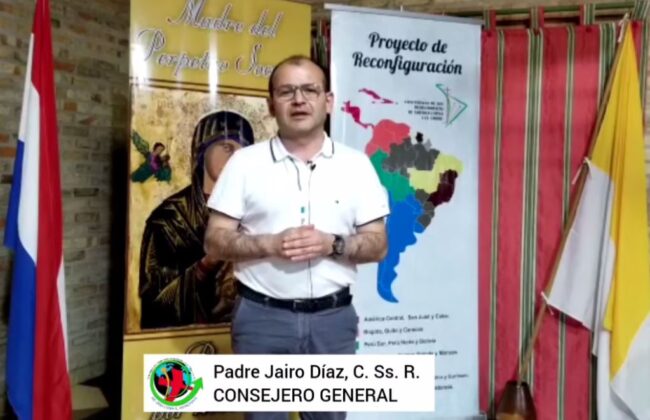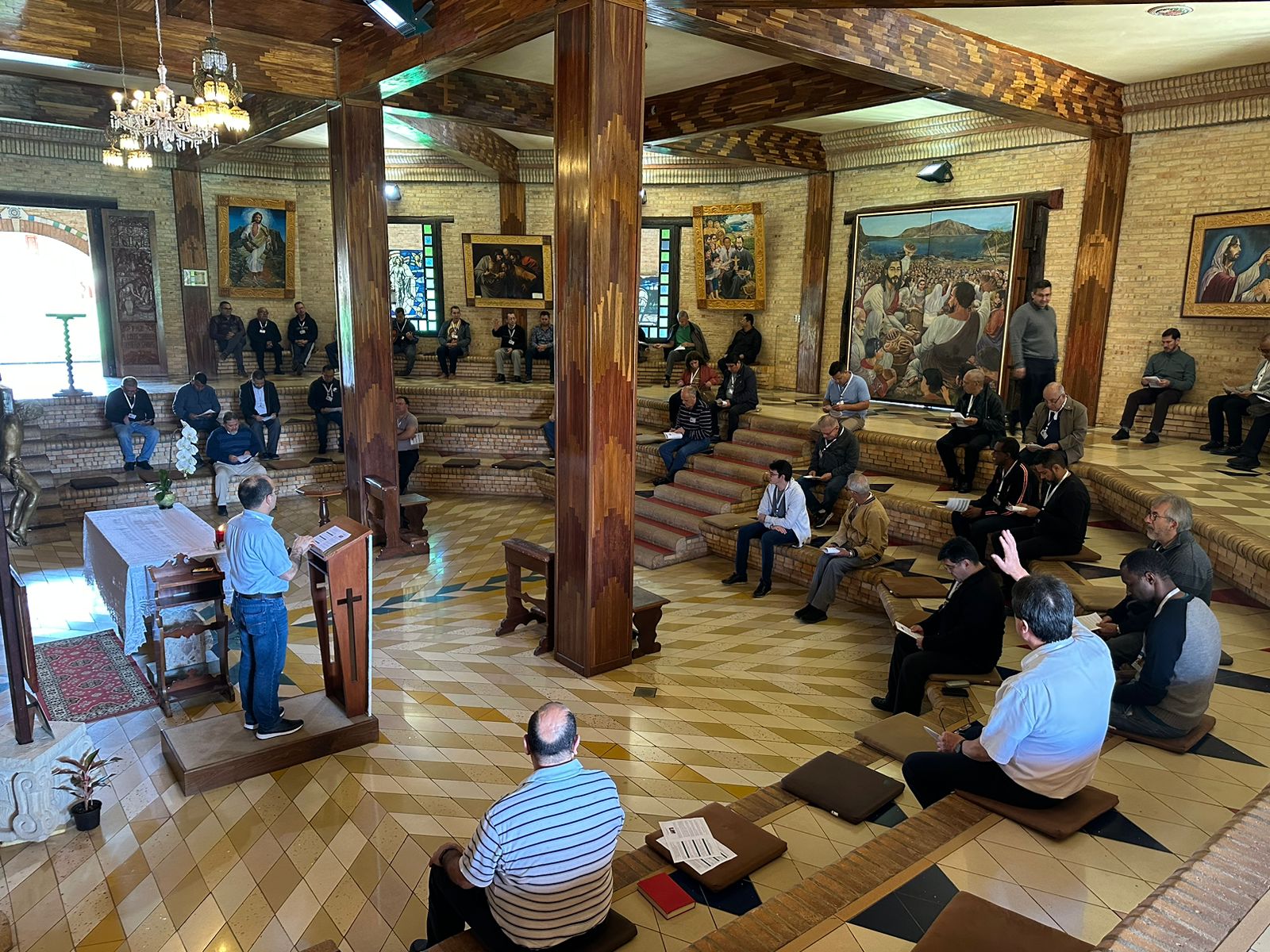The Redemptorists of the Conference of Latin America and the Caribbean are celebrating the 3rd phase of the XXVI General Chapter of the Congregation in Atyrá en Paraguay. A significant context in which this event is taking place is the process of restructuring the Redemptorist Congregation and creating new Provinces. To know the spirit in which the Redemptorists of the “Continent of Hope” live this time, Scala News spoke with Fr. Jairo Diaz, General Consultor present at the meeting in Paraguay:

Fr Jairo, how do you evaluate the development of the restructuring process in Latin America and the Caribbean?
I see it as a time of dynamic living with the call to be faithful to the charism, to the Redemptorist mission, with a sense of humanity. Progress is being made in the process of restructuring and reconfiguring the existing provinces due to awareness-raising opportunities: meetings, assemblies, retreats and gatherings. The present Provinces continue to seek to be faithful to their charism and their missionary commitment. The Conference, amidst fears and hopes, fully welcomed the reconfiguration process, seen as a way of strengthening the mission. The importance of collaborative work in communion and shared mission, is effectively noted. Openness, missionary solidarity, mission in different fields, a clear vision of mission in partnership with others, overcoming difficulties and taking up challenges amid the novelty brought about by the process of restructuring and reconfiguration.
Reconfiguration, as a concrete stage of restructuring, challenges Redemptorists to renew themselves, re-imagine their missionary identity and respond better to today’s calls. How can this proposal be implemented without losing the essence of the Redemptorist charism?
It is possible when we live in the apostolic community and have a sense of belonging to the community of brothers since community life is essential to Redemptorist identity. Not less important is being close to the most abandoned people, with the simplicity of life, being with the people and being available to share with them.
We should be able to meet the new abandoned in the realities where the missionary project is lived, in the style of Alphonsus in the beginnings of the Congregation. We must cultivate a sense of itinerancy, creative fidelity, of the exodus and going out to meet the poorest.
What are the most significant challenges facing Redemptorists on the continent of Latin America and the Caribbean?
I consider the challenge of formation for the mission to be essential.
We speak about a formation centred on the person; that helps to develop the fullness of humanity in the project of self-transcendence through love, through the gift of self: “If humanity is not solidly built up, it prepares the weakness of perseverance”.
A human formation that knows how to struggle with imperfections. Those in the formation stage may be able to assume and live their affectivity joyfully.
A formation that helps to build healthy and coherent personalities in discernment. A formation that accompanies and forges an identity in the pastoral and apostolic spheres, that prepares for fidelity and not for success.
And above all, formation that is the key to evangelisation, starting from the need to be formed to evangelise from the tradition of the Congregation.

Speaking about apostolic priorities of the Congregation, what could be improved to strengthen the Redemptorist presence in Latin America and the Caribbean?
The Apostolic Plan proposes missionary and apostolic priorities. To put them into practice, it is necessary to leave behind structures that do not allow or do not contribute to missionary dynamism.
In the new Units, it is necessary to form teams to work with the different interlocutors indicated in the apostolic plans, the poor, migrants, women, youth and children in vulnerable situations, Afro-Americans, peasants, etc. This discernment of priorities has to be done by listening to the cry of the people, offering not what is to our liking or convenience, but what the people are looking for or need, being inserted in their context and going out to meet them in the existential peripheries and continuing the journey with a projective gaze of fidelity to the Gospel, where we can discover what God wants, guided by the Holy Spirit and with a sense of community.
We need to transform our mission into a mission done in partnership, recognising in the laity the presence of the Church and, in this way, finding in them the support and the exercise of the mission.
Thank you for sharing your thoughts with us.
Scala News






